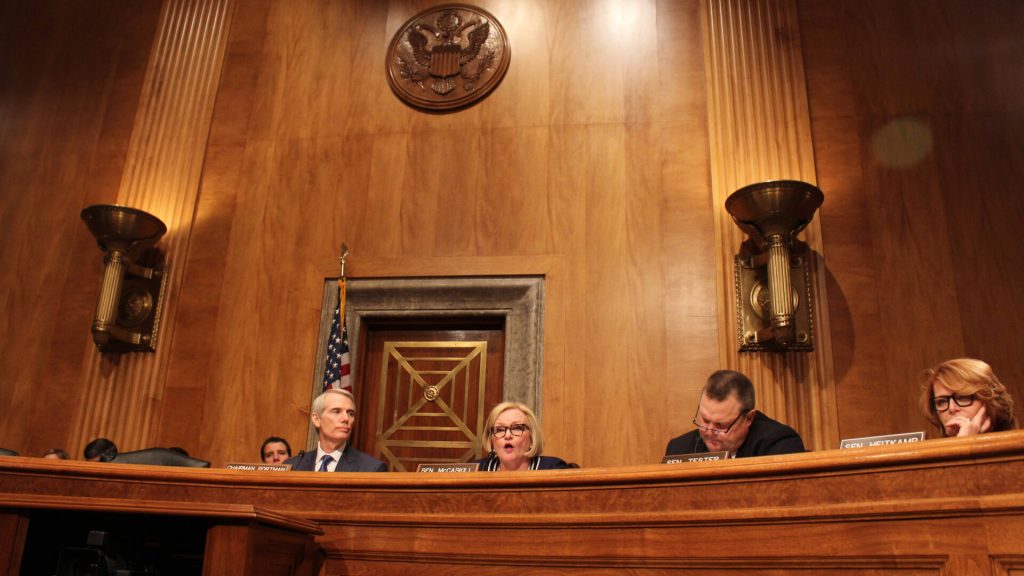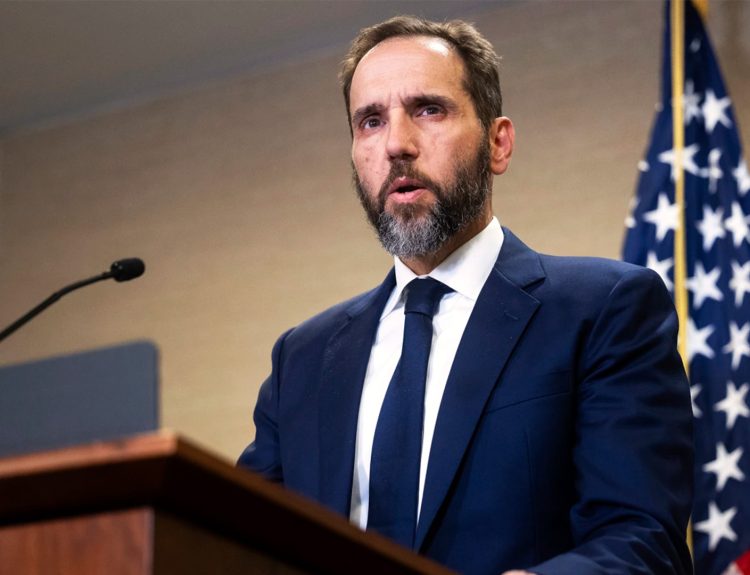When a bipartisan group of Senators recently unveiled an immigration reform deal aiming to improve border security, figures across the Republican party quickly denounced it as an “open border amnesty” bill. But a deeper look at the details reveals their rhetoric rings hollow.
The proposed legislation would crack down on asylum claims and speed up deportations. Yet the dramatic cries of “amnesty” suggest some Republicans prefer keeping the border crisis simmering as a political issue through 2024 instead of solving actual problems.
Hardline Right-Wing Opposition Forms Despite Highly Restrictive Bill
The immigration reform bill put forward by the group of Senators, including 16 Republicans, sets forth measures to cut down on asylum claims and accelerate removals of those not qualified. But Rep. Marjorie Taylor Greene still labeled it “open border amnesty” that “erases our borders.” Her heated rhetoric found echoes across right-wing media. However, the bipartisan deal decisively does not offer amnesty or open borders; in fact, it makes claiming asylum significantly tougher.

So why the visceral pushback? The exaggerated responses suggest figures like Greene want to keep immigration issues in the headlines through the 2024 election rather than achieve meaningful progress. Finding solutions requires compromise, but for some Republicans, political opportunity wins out over policy breakthroughs.
What The Deal Says About Border Security
Prominent Republicans like House Majority Leader Steve Scalise falsely claimed the Senate deal “accepts 5,000 illegal immigrants a day.” But the bill would simply trigger increased enforcement efforts when daily border crossings reach an average of 5,000 per week. This threshold does not greenlight that level of migrants coming in, as critics disingenuously assert.

In reality, the proposed legislation puts forward the very border security measures Republicans have called for. New asylum claims would be completely barred once the 5,000 weekly average is hit. And any new arrivals would face immediate deportation back over the border after that limit kicks in. It unequivocally strengthens immigration enforcement.
Asylum Rules Would Get Much Stricter Under The Bipartisan Deal
Despite the torrent of Republican criticism, the bipartisan Senate deal makes claiming asylum substantially more difficult, which contradicts the outlandish “amnesty” allegations. The standard of proof for asylum seekers would be higher under the legislation while cases must be decided within months instead of years.

In addition to faster case timelines, the bill transfers asylum decisions from backlogged immigration courts over to USCIS instead. These major changes line up with longtime conservative demands. Yet figures like Donald Trump Jr. still blast modest steps forward as “amnesty,” demonstrating the uphill challenge to make progress despite bipartisan common ground.
Why Immigration Deal Critics Moved The Goalposts
After pressing for tougher asylum laws for many years, Republicans now suddenly claim rule changes are not essential at all – instead, President Biden should just enforce existing statutes. This pivot suggests they recognize most voters favor action on immigration, but see ongoing political value in keeping the “crisis” at the border boiling rather than cooling it down by improving the system.

Having demanded tweaks to asylum protocols for ages, the instant pullback once the Senate group unveiled its proposal reveals how some GOP figures would rather stall any reforms to sustain campaign attacks rather than achieve meaningful solutions.
Republican Bill Co-Author Predicts Bad Faith Attacks Over Policy Substance
Ahead of releasing the bipartisan immigration bill, GOP Senator James Lankford predicted that once the final text proved accusations about “amnesty” false, the critics “will find something different” rather than apologize. He correctly foresaw how they would cling to heated rhetoric irrespective of facts.

The near-instant flood of renewed “amnesty” charges after the bill’s release validated Lankford’s expectation that denial and brinkmanship would beat working toward compromise. Even when their policy requests materialize, some Republicans dodge substantive debate.
Little Factual Grounds To Label Modest Reforms As “Amnesty“
Harsh critics have offered almost no specific evidence that the protections and citizenship path laid out in the Senate immigration bill match any reasonable interpretation of “amnesty.” While some may argue the legislation does not clamp down enough on asylum procedure abuses, it decidedly does not actively assist unlawful immigration.

The proposed laws would make improperly entering and staying in the country more difficult than ever. Yet the drastic “amnesty” label persists among prominent Republicans. This demonstrates the sheer difficulty of making meaningful progress even with modest bipartisan reforms extremely tilted toward conservative priorities.
Harsh Rhetoric Recalls Past Immigration Reform Debattles
The borderline hysterical cries of “amnesty” from some Republicans echo immigration debates of the early 2000s. When George Bush sought bipartisan compromises on immigration reform, his efforts faced similar accusations of opening floodgates and granting free passes from figures like Rush Limbaugh.

Now even the minor proposed improvements put forward by the Senate “Gang of 16” bring exaggerated responses from GOP hardliners. This shows the persistent obstacles blocking the way for Republican deal-makers who want solutions.
GOP “Buyer’s Regret” Behind The Brinkmanship
Some analysts argue Republicans have “buyer’s remorse” on using the prospect of immigration rule changes to extract broader concessions from Democrats on issues like securing more Ukraine aid. Once Senators like Lankford and Tillis began drafting border security upgrades, however, second thoughts emerged.

That could explain the instant pullback on the right once the Senate group previewed long-discussed asylum system reforms. Having won initial bargaining leverage by suggesting a willingness to talk about immigration, hardliners now draw new lines in the sand.
No Sign Of Apologies Over Early “Amnesty” Claims
As Senator Lankford indicated, nobody expects critics on the right to retract their past claims about the still-unwritten immigration bill granting “amnesty” to millions. Their rhetoric charged forward absent key facts.

In keeping with Lankford’s prediction, figures like Donald Trump Jr. continue using the “amnesty” term frequently to blast the now-released legislation. Substituting catchphrases for truth makes compromising solutions impossible.
GOP Needs To Move Past Rhetoric For Immigration Progress
The virtually instant flood of exaggerated “amnesty” charges shows that some Republicans currently prefer keeping immigration issues as a toxic political weapon rather than solving actual problems. But US security intrinsically depends on updating dysfunctional systems blocking lawful migration.

For that essential progress, Republican leaders must firmly guide their faithful beyond reactionary rhetorical brinkmanship. immigration reform plans like the Senate “Gang of 16” proposal offer a promising starting point for this necessary transition even before any final votes emerge.






